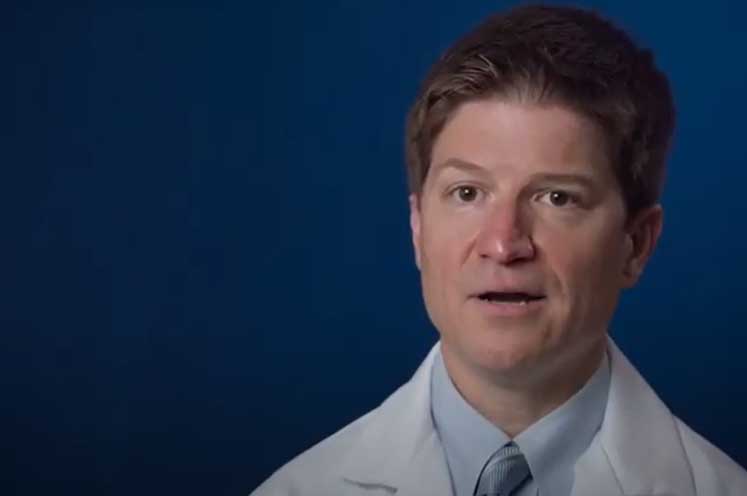Heart Valve Disease
Not only can heart valve disease cause unpleasant symptoms such as shortness of breath, fatigue and chest heaviness, it can threaten your health. At Henry Ford Health, we help protect your heart and help you feel better as soon as possible. We do so in innovative ways.
In the past, doctors mainly treated heart valve disease with open-heart surgery. At the Center for Structural Heart Disease, we’ve developed a reputation as national leaders in minimally invasive approaches. These valve repairs and replacements reduce your risk and speed your recovery.
Treating heart valve disease: The Henry Ford advantage
When you come to Henry Ford for heart valve disease, you work with experts. Our team’s experience and skill means you receive the best care, with safer procedures and quicker recovery. You’ll also find treatment options that may not exist at other programs. A few highlights of our program:
- We see more aortic valve and mitral valve cases than 90 percent of the nation’s medical centers.
- Our center is among the few in the country treating tricuspid valves and pulmonary valves.
- Our team is led by renowned cardiologist William W. O’Neill, M.D., who performed the country’s first minimally invasive aortic valve replacement.
Learn more about our heart valve repair and replacement.
How heart valves becomes diseased
Some people develop heart valve disease during their lives. Others have a problem from birth. The two main heart valve conditions are:
- Stenosis: Narrowing (stenosis) can occur when the valve’s flaps become thick and stiff. This condition stops the valve from fully opening and prevents blood from flowing through the heart.
- Regurgitation: When a valve’s flaps don’t close tightly, regurgitation occurs. This problem causes blood to leak back into the heart chamber it came from. We treat both forms of regurgitation. Degenerative, or primary, regurgitation occurs because of a problem with the valve itself. Functional, or secondary, regurgitation, occurs when another heart problem affects the valve.
Types of heart valve disease
Your heart has four valves that control the flow of blood between the chambers of your heart:
- Aortic valve: This valve sits between the left ventricle (lower heart chamber) and the aorta (main artery that carries blood out of the heart). It has three flaps that should open and close to send blood to the aorta. Learn more about aortic valve disease.
- Mitral valve: The mitral valve sits between the left atrium (upper heart chamber) and left ventricle. It controls the flow of blood coming from the lungs through the left side of the heart. Two flaps should open and close to control blood flow. Learn more about mitral valve disease.
- Pulmonary valve: The pulmonary valve lies between the right ventricle and the pulmonary artery, which sends blood to the lungs to pick up oxygen. This valve should have three flaps that open and close to control blood flow. Learn more about pulmonary valve disease.
- Tricuspid valve: This valve sits between the chambers on the right side of the heart. It allows blood to flow from the right atrium to the right ventricle. This valve should have three flaps that open fully and close tightly. Learn more about tricuspid valve disease.
Diagnosing heart valve disease
Our doctors treat all types of heart valve disease. We work to evaluate your symptoms and make the right diagnosis. We meet with you to:
- Perform a physical exam
- Discuss your symptoms and medical history
- Review any previous tests or imaging studies
- Determine whether you need additional heart tests and scans
Latest treatments for heart valve diseases
Our team meets each week to discuss individual cases, ensuring an accurate diagnosis and tailored treatment recommendations. We discuss recommendations with you so that you can decide what’s best for your needs. You may need one of the following treatments:
- Minimally invasive heart valve replacement or repair: Our doctors lead the field with minimally invasive heart valve replacement and repair. These procedures provide alternatives to open-heart surgery, for safer treatment and faster recovery. We are one of the nation’s most experienced programs for aortic valve and mitral valve disease, offering options for a range of needs. Learn more about our:
- Medication and monitoring: Medications don’t cure heart valve disease, but they may help relieve symptoms. We can prescribe medications and help you make lifestyle changes to improve your health.
- Open-heart surgery: Some people still require open-heart surgery for effective heart valve disease treatment. Our team includes top Henry Ford heart surgeons.
.svg?iar=0&hash=F6049510E33E4E6D8196C26CCC0A64A4)

/hfh-logo-main--white.svg?iar=0&hash=ED491CBFADFB7670FAE94559C98D7798)
